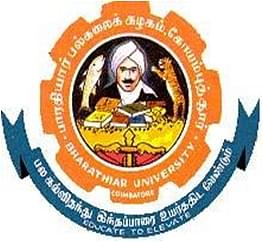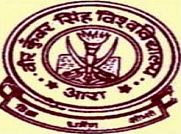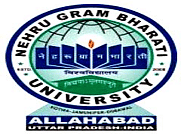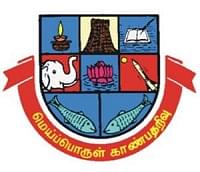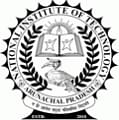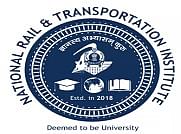Introduction about Master of Education (MEd)
The Master of Education (MEd) from the best affordable college in India
is an advanced graduate degree program designed for educators and professionals
in the field of education who wish to deepen their knowledge, enhance their
skills, and advance their careers in teaching, administration, curriculum
development, educational leadership, counseling, or related areas. The MEd
program offers a comprehensive and interdisciplinary approach to education,
combining theoretical study, practical experience, and research-based inquiry
to prepare graduates for leadership roles and impact in the field of education.
Here's an introduction to the Master of Education (MEd) degree:
a)
Purpose and Objectives:
b)
The MEd program is designed to provide educators
and educational professionals with opportunities for professional growth,
career advancement, and specialization in specific areas of education. The
program aims to foster critical thinking, reflective practice, and lifelong
learning among educators, empowering them to make meaningful contributions to
the improvement of educational outcomes and the advancement of educational
equity and social justice.
c)
Curriculum and Coursework:
d)
The MEd curriculum typically includes a combination
of core courses, elective courses, specialization tracks, field experiences,
and research projects. Core courses may cover topics such as educational
psychology, curriculum development, instructional design, assessment and
evaluation, educational leadership, diversity and inclusion, and research
methods in education. Elective courses allow students to explore specialized
topics, emerging trends, or interdisciplinary perspectives within their chosen
area of concentration.
e)
Areas of Specialization:
f)
MEd programs offer a wide range of specialization
tracks or concentration areas to accommodate the diverse interests and career
goals of students. Common areas of specialization include:
g)
Curriculum and Instruction: Focuses on curriculum
development, instructional strategies, assessment techniques, and pedagogical
innovations to enhance teaching and learning outcomes.
h)
Educational Leadership and Administration: Prepares
educators for leadership roles in school administration, educational policy,
school improvement, and organizational management.
i)
Special Education: Addresses the needs of students
with disabilities or special needs, emphasizing inclusive practices,
differentiated instruction, and support services.
j)
Counseling and Guidance: Trains professionals to
provide counseling, guidance, and support to students, families, and
communities, addressing social, emotional, and behavioral issues.
k)
Higher Education Administration: Prepares
individuals for leadership roles in colleges, universities, and higher
education institutions, focusing on student affairs, academic affairs,
enrollment management, and institutional research.
l)
Adult Education and Lifelong Learning: Addresses
the needs of adult learners, workforce development, continuing education, and
professional development initiatives.
m)
Technology Integration and Digital Learning:
Explores the use of technology, digital resources, and online learning
platforms to enhance teaching and learning experiences in diverse educational
settings.
n)
Literacy and Language Education: Focuses on
literacy development, language acquisition, English as a second language (ESL),
bilingual education, and literacy instruction across disciplines.
o)
Practical Experience and Fieldwork:
p)
MEd programs often include practical components
such as internships, practicum experiences, fieldwork placements, or student
teaching assignments to provide hands-on experience in educational settings.
These practical experiences allow students to apply theoretical knowledge to
real-world contexts, develop teaching skills, and engage with diverse learners
under the guidance of experienced educators and mentors.
q)
Research and Scholarship:
r)
MEd programs emphasize research-based inquiry,
evidence-based practice, and scholarly inquiry in education. Students may
engage in research projects, thesis work, action research, or capstone projects
under the supervision of faculty mentors, exploring topics of interest,
conducting empirical studies, and contributing to the knowledge base of the
field.
s)
Flexible Delivery Formats:
t)
MEd programs may be offered in a variety of
delivery formats to accommodate the needs of working professionals, part-time
students, or individuals with family or other commitments. Flexible options may
include on-campus classes, evening or weekend classes, online courses,
hybrid/blended formats, or accelerated programs.
u)
Professional Development and Networking:
v)
MEd programs provide opportunities for professional
development, networking, and collaboration among students, faculty, alumni, and
educational stakeholders. Students may participate in workshops, seminars,
conferences, guest lectures, and professional organizations to expand their
professional networks, share best practices, and stay abreast of current trends
and issues in education.
Overall, the Master of Education (MEd) degree equips educators and
educational professionals with the knowledge, skills, and dispositions to make
a positive impact in the field of education, promoting excellence, equity, and
innovation in teaching, learning, and educational leadership. Whether graduates
aspire to become teachers, administrators, curriculum specialists, counselors,
or advocates for educational reform, the MEd degree offers a valuable pathway
to professional growth, career advancement, and leadership in education.
What is eligibility for Master of Education (MEd)
degree?
The eligibility criteria for a Master of Education (MEd) degree at thetop college in India can vary depending on the institution offering the
program and the specific requirements of the program itself. However, here are
some common eligibility requirements for MEd programs:
·
Educational Background:
·
A bachelor's degree: Most MEd programs require
applicants to hold a bachelor's degree from a recognized institution. While the
bachelor's degree does not necessarily have to be in education, applicants with
undergraduate degrees in related fields such as education, psychology,
sociology, or liberal arts may be preferred. Some programs may also accept
applicants with relevant professional experience or alternative qualifications
in lieu of a bachelor's degree.
·
Academic Performance:
·
Minimum GPA: Many MEd programs have minimum grade
point average (GPA) requirements for admission. The required GPA may vary by institution
and program but is typically in the range of 2.5 to 3.0 on a 4.0 scale. Some
programs may have higher GPA requirements for admission to competitive programs
or specialization tracks.
·
Professional Experience:
·
Teaching Experience: Some MEd programs require
applicants to have prior teaching experience or relevant work experience in the
field of education. The amount and type of required experience may vary
depending on the program's focus and specialization areas. Applicants with
teaching experience may be better positioned to benefit from advanced
coursework and contribute to class discussions and activities.
·
Standardized Tests (if applicable):
·
GRE or MAT: Some MEd programs may require
applicants to submit scores from standardized tests such as the Graduate Record
Examination (GRE) or the Miller Analogies Test (MAT). However, many MEd
programs do not require standardized test scores for admission, particularly
for applicants with strong academic backgrounds or relevant professional
experience.
·
Letters of Recommendation:
·
Some MEd programs may require applicants to submit
letters of recommendation from academic or professional references who can
attest to the applicant's academic abilities, teaching skills, leadership
potential, and suitability for graduate study in education. Letters of
recommendation should be written by individuals who know the applicant well and
can provide meaningful insights into their qualifications.
·
Statement of Purpose or Personal Statement:
·
Many MEd programs require applicants to submit a
statement of purpose or personal statement explaining their motivation for
pursuing an MEd degree, their academic and professional background, their areas
of interest or specialization within education, and their career goals. The
statement of purpose allows applicants to articulate their reasons for seeking
admission to the program and to demonstrate their commitment to their chosen
field of study.
·
Additional Requirements:
·
Depending on the institution and program,
applicants may be required to submit additional materials such as a resume or
curriculum vitae (CV), writing samples, transcripts from all previous colleges
or universities attended, or documentation of relevant professional
certifications or licensure.
·
English Language Proficiency (if applicable):
·
International applicants whose first language is
not English may be required to demonstrate proficiency in English through
standardized tests such as the Test of English as a Foreign Language (TOEFL) or
the International English Language Testing System (IELTS). Minimum score
requirements vary by institution and program.
Prospective students should carefully review the specific eligibility
criteria and admission requirements provided by the institution offering the
MEd program and ensure that they meet all requirements before submitting their
application. If you have any questions or need clarification on any aspect of
the eligibility process, don't hesitate to reach out to the institution's
admissions office for assistance.
What is admission process for Master of Education
(MEd) degree?
The admission process for top Master of Education (MEd) degree college
typically involves several steps, including preparing application materials,
submitting the application, and possibly participating in interviews or
providing additional documentation. Here's a general overview of the admission
process for MEd programs:
Research
Programs: Begin by researching MEd programs offered by universities, colleges,
or educational institutions. Consider factors such as program specialization,
faculty expertise, curriculum, delivery format (on-campus, online, hybrid),
location, accreditation, and reputation.
Review
Admission Requirements: Carefully review the admission requirements for
each MEd program you're interested in. These requirements may vary by
institution and program but commonly include educational qualifications,
academic performance, standardized test scores (if applicable), professional
experience, letters of recommendation, statement of purpose, and application
fees.
Prepare
Application Materials:
Transcripts: Obtain
official transcripts or academic records from all colleges, universities, or
educational institutions attended, demonstrating completion of a bachelor's
degree or equivalent qualification. Transcripts should be submitted directly
from the issuing institutions to the admissions office of the MEd program.
Letters
of Recommendation: Request letters of recommendation from academic
or professional references who can attest to your academic abilities, teaching
skills, leadership potential, and suitability for graduate study in education.
Letters should be written by individuals who know you well and can provide
meaningful insights into your qualifications.
Statement
of Purpose: Write a statement of purpose or personal statement explaining your
motivation for pursuing an MEd degree, your academic and professional
background, your areas of interest or specialization within education, and your
career goals. The statement of purpose allows you to articulate your reasons
for seeking admission to the program and to demonstrate your commitment to your
chosen field of study.
Standardized
Test Scores (if applicable): If required by the program, submit scores
from standardized tests such as the Graduate Record Examination (GRE) or the
Miller Analogies Test (MAT). Some programs may waive the standardized test
requirement for applicants with strong academic backgrounds or relevant
professional experience.
Application
Form and Fee: Complete the application form provided by the institution offering the
MEd program and pay any required application fees. The application form
typically includes personal information, academic history, contact details, and
other relevant information requested by the admissions office.
Additional
Materials (if applicable): Some MEd programs may require applicants to
submit additional materials such as a resume or curriculum vitae (CV), writing
samples, transcripts from all previous colleges or universities attended, or
documentation of relevant professional certifications or licensure. Follow the
instructions provided by the institution for submitting all required materials.
Submit
Application: Submit your completed application along with all required materials by
the specified deadline. Follow the institution's instructions for submitting
the application, which may include uploading documents online, sending them by
mail, or delivering them in person.
Interview
or Additional Documentation (if applicable): Some MEd programs may require
applicants to participate in an interview, provide additional documentation, or
complete a writing sample as part of the admissions process. If requested,
follow the instructions provided by the institution and prepare accordingly.
Admission
Decision: After reviewing applications and conducting interviews or reviewing
additional documentation, the admissions committee will make a decision
regarding admission. Successful applicants will receive an offer of admission,
while others may be placed on a waitlist or denied admission.
Acceptance
and Enrollment: If you receive an offer of admission, carefully review the offer
letter, including any deadlines for accepting the offer and submitting
enrollment deposits. Once you've accepted the offer, follow the institution's
instructions for enrolling in classes, paying tuition and fees, and completing
any additional requirements for incoming students.
It's important to stay organized throughout the application process and
carefully follow the instructions provided by the institution to which you're
applying. If you have any questions or need clarification on any aspect of the
admission process, don't hesitate to reach out to the institution's admissions
office for assistance.
What is syllabus for Master of Education (MEd)?
The syllabus for MEd in India can vary significantly depending on the
institution offering the program, the specific specialization or concentration
track chosen by the student, and the academic focus of the program. However,
here's a general overview of the types of courses and topics that may be
included in an MEd program syllabus:
Core
Courses:
MEd programs often include a set of core courses that provide
foundational knowledge and skills in key areas of education. These core courses
may cover topics such as educational psychology, learning theories, human
development, curriculum design and development, assessment and evaluation,
research methods in education, and educational leadership.
Specialization
or Concentration Tracks:
MEd programs typically offer specialization or concentration tracks in
specific areas of education, allowing students to tailor their course of study
to their academic interests, career goals, and areas of expertise. Common
specialization tracks include:
Curriculum and Instruction: Courses may cover topics such as curriculum
theory, instructional design, pedagogical strategies, differentiated
instruction, and assessment practices.
Educational Leadership and Administration: Courses may cover topics such
as educational leadership theory, organizational management, school
improvement, educational policy analysis, and leadership ethics.
Special Education: Courses may cover topics such as special education
law, inclusive education practices, behavior management strategies, assistive
technology, and individualized education programs (IEPs).
Counseling and Guidance: Courses may cover topics such as counseling
theories and techniques, career development, group counseling, crisis
intervention, and multicultural counseling.
Higher Education Administration: Courses may cover topics such as higher
education policy, student affairs administration, enrollment management,
academic advising, and institutional research.
Adult Education and Lifelong Learning: Courses may cover topics such as
adult learning theory, program development and evaluation, workplace training,
and continuing education initiatives.
Technology Integration and Digital Learning: Courses may cover topics
such as educational technology trends, digital literacy, online teaching and
learning, instructional design for e-learning, and technology policy in
education.
Literacy and Language Education: Courses may cover topics such as
literacy development, language acquisition, reading instruction, writing
instruction, bilingual education, and literacy assessment.
Early Childhood Education: Courses may cover topics such as child
development theory, early childhood curriculum, play-based learning,
social-emotional development, and family engagement.
Elective
Courses:
MEd programs often offer a variety of elective courses that allow
students to explore specialized topics, emerging trends, or interdisciplinary
perspectives within their chosen area of concentration. Elective courses may
cover niche areas of education, interdisciplinary intersections with other
fields, or cutting-edge research and practice.
Practicum
or Field Experience:
Many MEd programs require students to complete a practicum or field
experience component, providing opportunities for hands-on learning, practical
application of knowledge and skills, and engagement with diverse educational
settings. Practicum experiences may involve student teaching, internship
placements, clinical observations, or research projects in schools, colleges,
community organizations, or other educational contexts.
Research
Project or Thesis:
Some MEd programs culminate in a research project, thesis, or capstone
project under the supervision of a faculty advisor. The research component
allows students to conduct original research, contribute to the scholarly
literature in their field, and demonstrate mastery of advanced concepts and
methodologies in education.
Seminar
Courses:
MEd programs may offer seminar courses that provide opportunities for
in-depth study and discussion of specialized topics, research trends, or
contemporary issues in education. Seminar courses may involve intensive
reading, writing, and presentation assignments, fostering collaboration and
critical inquiry among students.
Professional
Development Workshops:
Some MEd programs incorporate professional development workshops,
seminars, or conferences to enhance students' practical skills, expand their
professional networks, and connect them with experts and practitioners in the
field of education. Professional development opportunities may cover topics
such as leadership development, teacher training, curriculum innovation, or
educational technology integration.
It's important to note that the specific syllabus and course offerings
may vary from one MEd program to another, and students should consult the
program's website or contact the program coordinator for detailed information
on curriculum requirements, course descriptions, and elective options.
Additionally, MEd programs may be structured differently based on the
institution's academic philosophy, resources, and faculty expertise, so
prospective students should carefully research and compare programs to find the
best fit for their academic and professional goals.
What are scopes after Master of Education (MEd)?
After completing a Master of Education (MEd) degree, graduates have a
wide range of career opportunities available to them in various sectors of the
education field. Here are some common scopes and career paths for MEd
graduates:
Teaching:
MEd graduates may continue their careers as teachers in K-12 schools,
colleges, universities, or vocational institutions. With their advanced degree,
they may be eligible for leadership roles such as lead teacher, department
chair, curriculum coordinator, or mentor teacher. MEd graduates may also
specialize in specific subject areas or student populations, such as special
education, English language learners, or gifted and talented students.
Educational
Leadership and Administration:
MEd graduates may pursue careers in educational leadership and
administration, serving as principals, assistant principals, school
administrators, district administrators, or educational consultants. They may
oversee school operations, manage budgets, develop policies, coordinate
curriculum initiatives, and provide leadership and support to teachers, staff,
students, and families.
Curriculum
Development and Instructional Design:
MEd graduates may work as curriculum developers, instructional
designers, or educational technologists, designing, implementing, and
evaluating instructional materials, programs, and technology-enhanced learning
environments. They may collaborate with teachers, administrators, and
educational stakeholders to develop standards-aligned curriculum, assessment
tools, and instructional resources.
Special
Education and Student Support Services:
MEd graduates specializing in special education or student support
services may work as special education teachers, resource specialists, behavior
interventionists, school psychologists, school counselors, or speech-language
pathologists. They may provide individualized instruction, behavior support,
counseling services, or therapeutic interventions to students with disabilities
or special needs.
Higher
Education Administration:
MEd graduates may pursue careers in higher education administration,
working in colleges, universities, or postsecondary institutions. They may
serve as academic advisors, admissions officers, student affairs
administrators, career counselors, or institutional researchers. They may also
work in faculty development, accreditation, enrollment management, or program
assessment.
Educational
Consulting and Advocacy:
MEd graduates may work as educational consultants, policy analysts, or
advocates for educational organizations, nonprofit organizations, government
agencies, or advocacy groups. They may conduct research, analyze data, develop
educational initiatives, or advocate for policies and practices that promote
educational equity, access, and excellence.
Professional
Development and Training:
MEd graduates may specialize in professional development and training,
designing and delivering workshops, seminars, or training programs for
teachers, administrators, or educational staff. They may work for school
districts, educational agencies, nonprofit organizations, or consulting firms,
providing training on topics such as curriculum development, instructional
strategies, assessment practices, or educational leadership.
Research
and Higher Education Teaching:
MEd graduates interested in research may pursue careers in academia,
conducting research, teaching courses, and mentoring students in colleges,
universities, or research institutions. They may work as faculty members,
research associates, or postdoctoral fellows, contributing to the advancement
of knowledge in the field of education through scholarly inquiry and
publication.
Community
Education and Outreach:
MEd graduates may engage in community education and outreach
initiatives, collaborating with community organizations, libraries, museums, or
youth centers to develop educational programs, workshops, or outreach
activities for children, families, or underserved populations. They may promote
lifelong learning, civic engagement, and community empowerment through
education.
Entrepreneurship
and Innovation:
MEd graduates with entrepreneurial aspirations may start their own
educational consulting firms, tutoring centers, online education platforms, or
educational technology startups. They may develop innovative solutions,
products, or services to address educational challenges, improve learning
outcomes, or enhance educational access and affordability.





